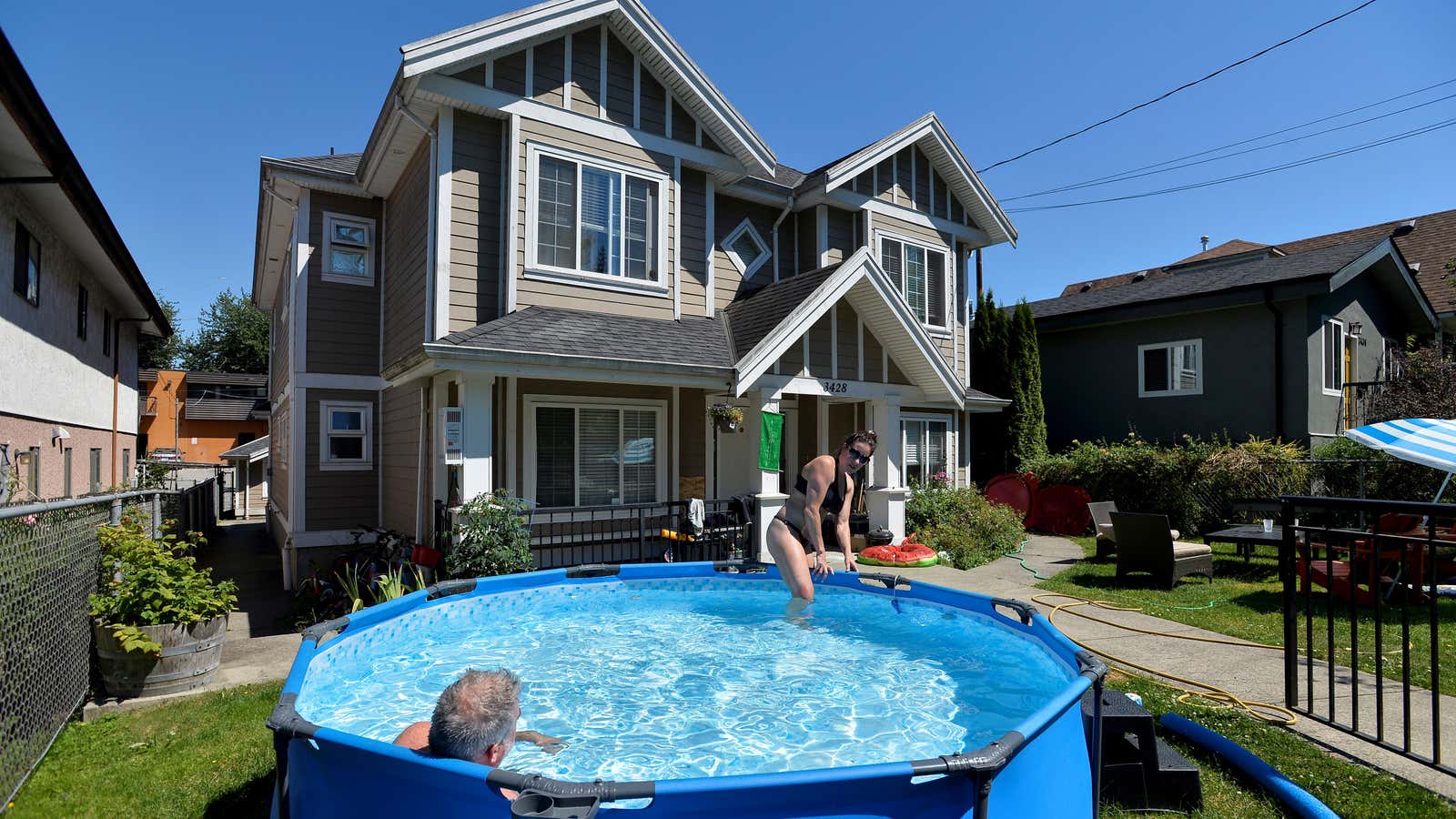Western parts of the US and Canada are baking in a record-setting heatwave, with temperatures at or above 110 degrees Fahrenheit (43 degrees Celcius) in Sacramento, Seattle, Portland, Vancouver and elsewhere in the region. The heat on June 28 was so intense that it caused rolling blackouts across Washington and Oregon, and literally melted power cables on Portland’s public transit system.
Most people don’t have air conditioning at home in the northwest, which is normally temperate in the summer. It’s installed in just 44% of houses in Seattle, according to the federal American Housing Survey, compared to 99% in a routinely hot city like Houston. As climate change continues to exacerbate extreme heat events, AC isn’t just a luxury—it could be a matter of life and death.
But energy-hungry AC is also itself a significant contributor to greenhouse gas emissions (in the US, equivalent to as much as 25.5 million cars in a year), and is also the primary culprit behind summer blackouts. Fortunately, there’s a better way—one that simultaneously tackles emissions from traditional home heating systems in the winter.
Heat pumps are the AC of the future
In general, the mantra among climate-conscious energy experts is that society needs to “electrify everything” that currently burns oil or gas.
For homeowners, a great place to start is with furnaces and stovetops. Heat pumps use the laws of physics and compressed gas to draw warm air into the house, rather than a furnace that burns gas. They’re up to 4.5 times more energy-efficient than furnaces, and perform well even in extremely cold climates. For that reason, they’re key to many governments’ decarbonization strategies; the Biden administration is investing $10 million in improved heat pump technology.
“We see heat pumps as a major contributor to solving our climate problems,” said Steven Nadel, director of the American Council for an Energy-Efficient Economy, a nonprofit research group.
But the best part about heat pumps is they can be run in reverse and act as a more energy-efficient air conditioner. So, getting back to the heatwave: For householders who typically need home heating in the winter and don’t currently have an AC for surprise hot weather, upgrading to a heat pump can cut annual energy bills and the household’s carbon footprint.
Climate-conscious building codes
For people building a new home, it may even be compulsory: At least 46 cities in the US, predominantly in California, have committed to new building codes that ban the use of gas in new buildings. Meanwhile, utility companies nationwide have rolled out at least $110 million in incentives to encourage heat pump adoption.
But sales of ACs still outnumber heat pumps nearly two to one, Jigar Shah, a senior official in the US Department of Energy, tweeted this week. Because home heating and cooling systems tend to last for at least a decade, each one of those sales locks in long-term implications for the climate. So the clock on the heat pump revolution is ticking fast.
